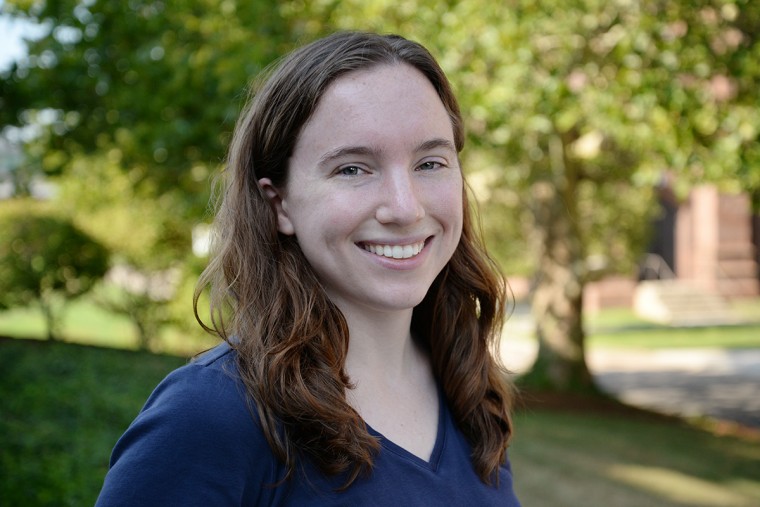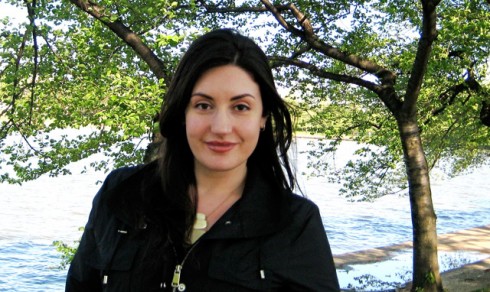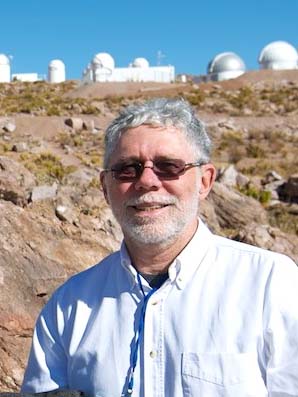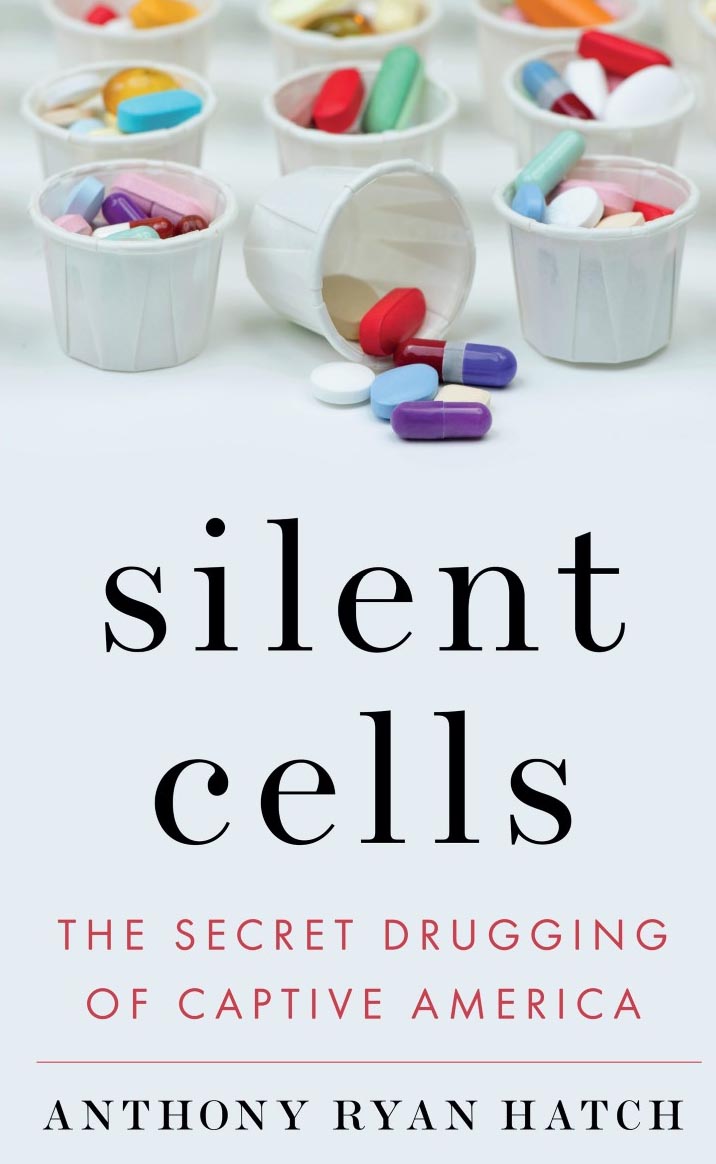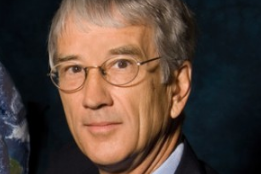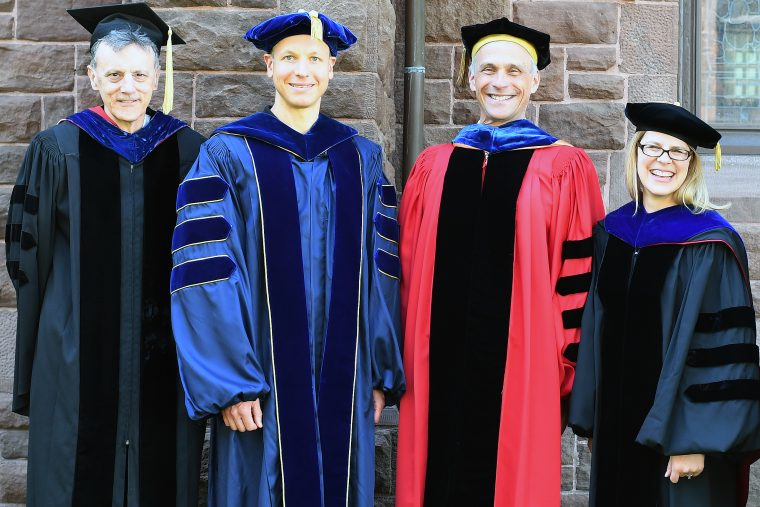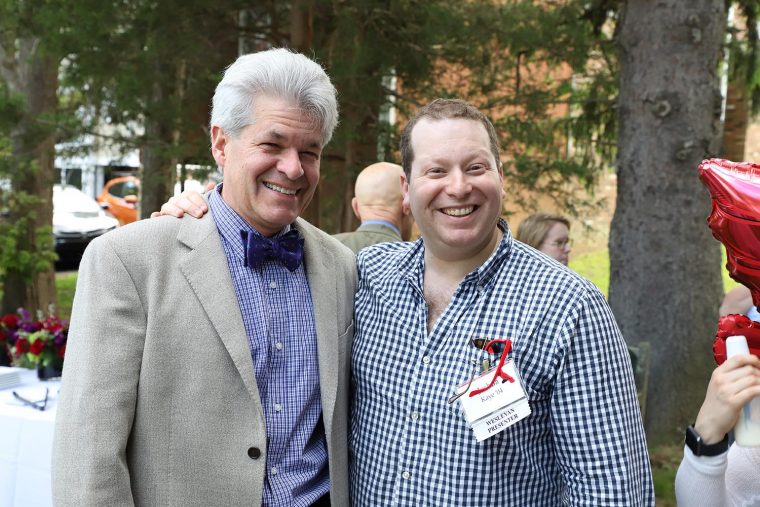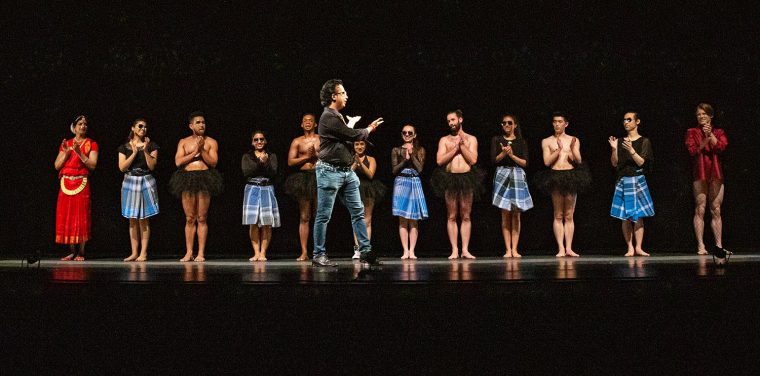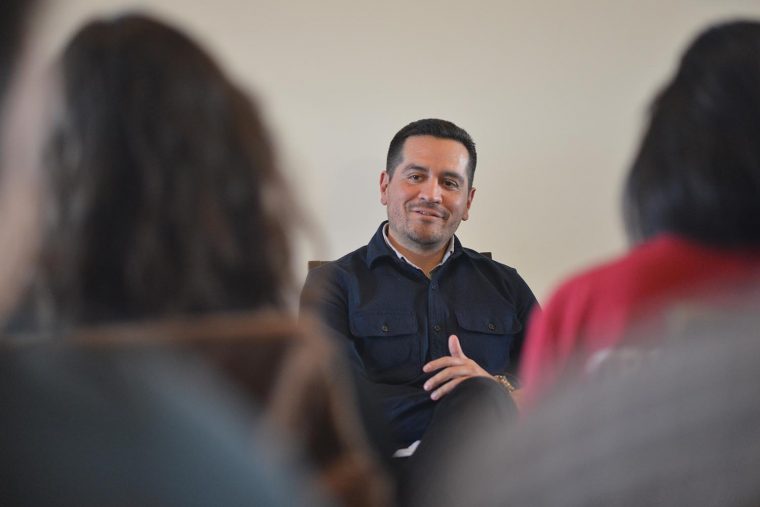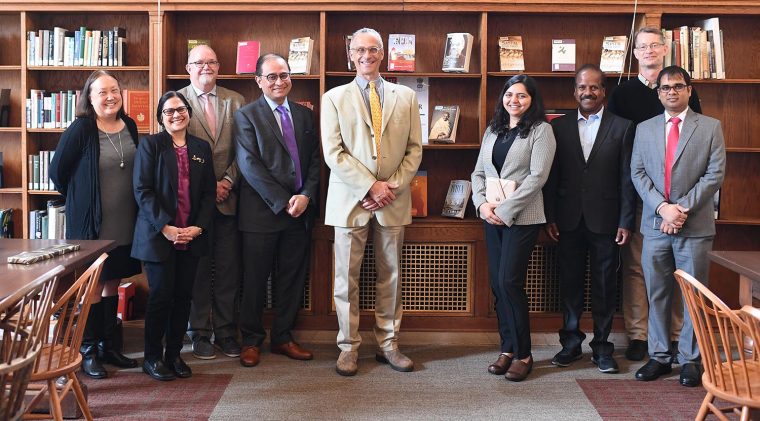Michelle Personick, assistant professor of chemistry, has been selected by the Leadership Council of the Interactive Online Network of Inorganic Chemists (IONiC) to participate in a National Science Foundation–funded study to develop, test, and refine a flexible, foundation-level inorganic chemistry course. As a Virtual Inorganic Pedagogical Electronic Resource (VIPEr) Fellow, Personick joins 17 other inorganic chemists from across the country in a community of practice dedicated to improving student learning. The 2018 VIPEr Fellows are the first faculty who have been selected for this groundbreaking project. The study, titled “Improving Inorganic Chemistry Education,” is being conducted with support from the National…
From May 28 to May 30, Associate Professor of History Victoria Smolkin attended a conference in Rome, Italy, on the “Cultures of Unbelief," organized by the Nonreligion and Secularity Research Network and the Vatican’s Council on Culture. She spoke on "The Culture of Unbelief 50 Years On," which commemorates the 50th anniversary of the original “Culture of Unbelief” conference, organized in 1969 by the Vatican’s Secretariat on Non-Believers and the University of California, Berkeley. Her copanelists included Cardinal Gianfranco Ravasi, president of the Pontifical Council for Culture, and Andrew Copson, president of the International Humanist and Ethical Union. Professor of Theology and…
Wesleyan faculty frequently publish articles based on their scholarship in The Conversation US, a nonprofit news organization with the tagline, “Academic rigor, journalistic flair.” In a new article, John Monroe Van Vleck Professor of Astronomy Bill Herbst and Assistant Professor of Earth and Environmental Sciences James Greenwood write about the model they've proposed for how the most common kind of meteorites form—a mystery that has dogged scientists for decades. The tell-tale clue to how meteorites were made, at the birth of the solar system April 26, 1803 was an unusual day in the small town of L’Aigle in Normandy, France – it…
Although dam removal is an increasingly common stream restoration tool, it may also represent a major disturbance to rivers that can have varied impacts on environmental conditions and aquatic biota. In a paper titled "Dam Removal Effects on Benthic Macroinvertebrate Dynamics: A New England Stream Case Study, five researchers from Wesleyan examined the effects of dam removal on the structure, function, and composition of benthic macroinvertebrate (BMI) communities in a temperate New England stream. The benthic—or "bottom-dwelling”—macroinvertebrates are small aquatic animals that are commonly used to study biological conditions of water bodies. The paper is published in the May 21…
Associate Professor of Science in Society Anthony Ryan Hatch is the author of a new book, Silent Cells: The Secret Drugging of Captive America, published on April 30 by University of Minnesota Press. The book is a critical investigation into the use of psychotropic drugs to pacify and control inmates and other captives in the vast U.S. prison, military, and welfare systems. According to the publisher: "For at least four decades, U.S. prisons and jails have aggressively turned to psychotropic drugs—antidepressants, antipsychotics, sedatives, and tranquilizers—to silence inmates, whether or not they have been diagnosed with mental illnesses. In Silent Cells, Anthony Ryan…
Wesleyan faculty frequently publish articles based on their scholarship in The Conversation US, a nonprofit news organization with the tagline, “Academic rigor, journalistic flair.” In a new article, Huffington Foundation Professor of Economics and Environmental Studies Gary Yohe writes about the economic costs of climate change, which he argues will hit our economy much sooner than many people realize. The economic cost of devastating hurricanes and other extreme weather events is even worse than we thought June marks the official start of hurricane season. If recent history is any guide, it will prove to be another destructive year thanks to the worsening…
Every year at Commencement, Wesleyan recognizes three outstanding teachers with Binswanger Prizes for Excellence in Teaching. These prizes, made possible by gifts from the family of the late Frank G. Binswanger Sr., Hon. ’85, underscore Wesleyan’s commitment to its scholar-teachers, who are responsible for the University’s distinctive approach to liberal arts education. Recommendations are solicited from alumni of the last 10 graduating classes, as well as current juniors, seniors, and graduate students. Recipients are chosen by a selection committee of faculty and members of the Alumni Association Executive Committee. This year, during the 187th Commencement ceremony, Wesleyan honored the following…
In 2018–19, six Wesleyan faculty retired from Wesleyan. They were honored during the 187th Commencement ceremony on May 26 and during a special ceremony at the Wasch Center for Retired Faculty. The faculty include: Douglas Charles Professor of Anthropology (2000 – 2019) Associate Professor of Anthropology (1994 – 2000) Assistant Professor of Anthropology (1986 – 1994) Ronald Ebrecht University Organist (1988 – 2019) Artist-in-Residence, Music (2011 – 2019) Laura Grabel Lauren B. Dachs Professor of Science and Society (2008 – 2018) Fisk Professor of Natural Sciences (1996 – 2008) Professor of Biology (1995 – 2018) Associate Professor of Biology (1989…
In this recurring feature in The Wesleyan Connection, we highlight some of the latest news stories about Wesleyan and our alumni. Wesleyan in the News Inside Higher Ed: "The Need for a Recovery of the Humanities" In this essay, President Michael S. Roth responds to the "flood of negativity" in public discourse about higher education, in general, and the humanities, in particular. He suggests that "in order to recover the trust of students and their families, we must overcome our cultivated insularity." 2. NBC News: "Carbon Dioxide Hits a Level Not Seen for 3 Million Years. Here's What That Means for…
Hari Krishnan, associate professor of dance, brought his Toronto-based company inDANCE to the Center for the Arts Theater for a Spring Faculty Dance Concert on April 26–27, with the New England premiere of SKIN. InDANCE is a progressive Canadian dance company whose work transcends boundaries of the familiar and culturally traditional. Offering, instead, surprising juxtapositions in styles, manner, and dress, inDANCE “subverts clichéd representations of ‘classical’ Indian dance, and speaks with an ‘obscenely loud,’ inimitable, and unorthodox global voice," as noted in the program Krishnan prepared for the event. SKIN, composed of five pieces, brought together on stage several members…
Wesleyan's Olin Library is now home to a collection of 33 titles donated by the Consulate General of India, New York. On May 1, Consul Sandeep Chakravorty visited campus and participated in a formal dedication of the "India Corner." Housed in the Smith Reading Room, these volumes, representing India’s rich history and culture, and covering the country’s linguistic and geographical diversity, join the library's other robust holdings in Indian history, culture, and politics as well as Wesleyan’s rich heritage in Indian music, dance, and theater. Among the donations are Introduction to the Constitution of India by Durga Das Basu; Sufi Lyrics by…


